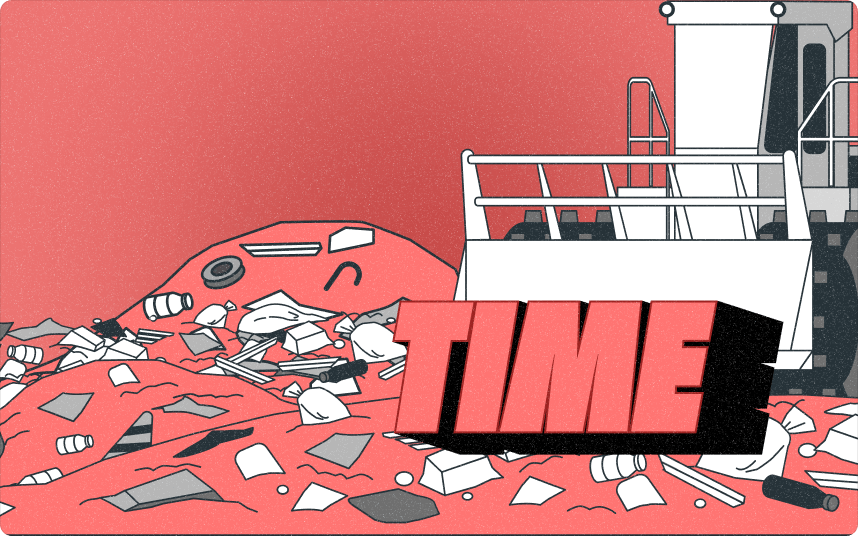
Everyone has experienced wasting time at work – whether it’s scrolling through social media, unnecessary meetings, chatting with colleagues, or just staring at a blank screen. While it may seem harmless to take a break here and there, too much unproductive time can start to affect work performance, causing employees to lose focus and even impacting their mental well-being. In this guide, we’ll help you discover your biggest time waster with some strategies for handling wasted time at work. Stay tuned to make the most out of your workday!

Time Wasters Activities at Work Statistics
Wasted time at work can be a major problem for both employees and employers. A comprehensive understanding of time wasting activities at work begins with an insightful look at work statistics. This data reveals the prevalence of these activities and their impact on productivity.
- On average, office workers face a staggering 56 workplace interruptions each day.
- Nearly 64% of employees use social media while at work.
- According to a work survey by Salary.com, workers waste an average of 2.09 hours per day on non work related tasks.
- 57% of employees often or very often feel their meetings could have been an email. 31 hours are spent in unproductive meetings over a month.
- More than 36% of millennials and younger workers like Gen Z spend two hours or more checking their personal phones during the workday.
- 39% of employees find themselves distracted by engaging in gossip with their colleagues, while 27% are sidetracked by co-workers who drop by for a chit chat.

Why Do Employees Waste Time at Work?
Most employees aren’t wasting their work time just because they are lazy or unproductive. In fact, there are various reasons why we tend to waste time at work, such as:
Get more out of your business
Get the best employee engagement content every week via mailing list

9 Biggest Workplace Time Wasters & How to Deal With It

Identify Your Time Wasting Activities
With this list of common time wasters in mind, it’s essential to assess your own work habits and identify any areas where you may be losing valuable time. This could include logging your daily tasks and tracking how much time you spend on each one or using a time management app to monitor your performance. Some helpful questions for productive employees include:
- How many hours do important tasks take me?
- Do I get easily distracted by notifications or interruptions?
- Am I prioritizing my tasks effectively?
- Do I have clear job responsibilities and goals?
- Is there anything that could improve the tools or equipment I use for my work?
- Am I utilizing effective communication methods with my team?
- Am I spending an excessive amount of time on non work related activities during work hours?
Bottom Line
By identifying and addressing your biggest time wasters at work, you can become more efficient and productive at work, leading to better job performance and overall satisfaction. So don’t let these common workplace time wasters hinder your productivity– with the right solutions and habits, you can make the most out of your work time. As Benjamin Franklin once said, “Lost time is never found again.” So let’s all strive to use our work time wisely and efficiently. Don’t waste it!
-The Monitask Team
FAQ
Why Am I Wasting Time at Work?
Employees wasting time at work can result from various factors such as lack of motivation, unclear goals, distractions like unnecessary meetings, excessive internet usage, or even personal issues. Understanding the root cause can help in creating effective solutions.
How Do You Measure Wasted Time at Work?
Measuring wasted time at work can be achieved through time tracking tools or software, which record the time spent on different tasks. Regular self-audits and supervisor evaluations can also provide insights into how time is being spent during work hours.
How Do You Stop Employees from Wasting Time?
To stop employees wasting time, establish clear expectations, provide necessary resources, and encourage open communication. Use performance metrics for evaluation, also consider implementing time tracking tools. Regular feedback and recognition for efficiency can also promote productivity.


